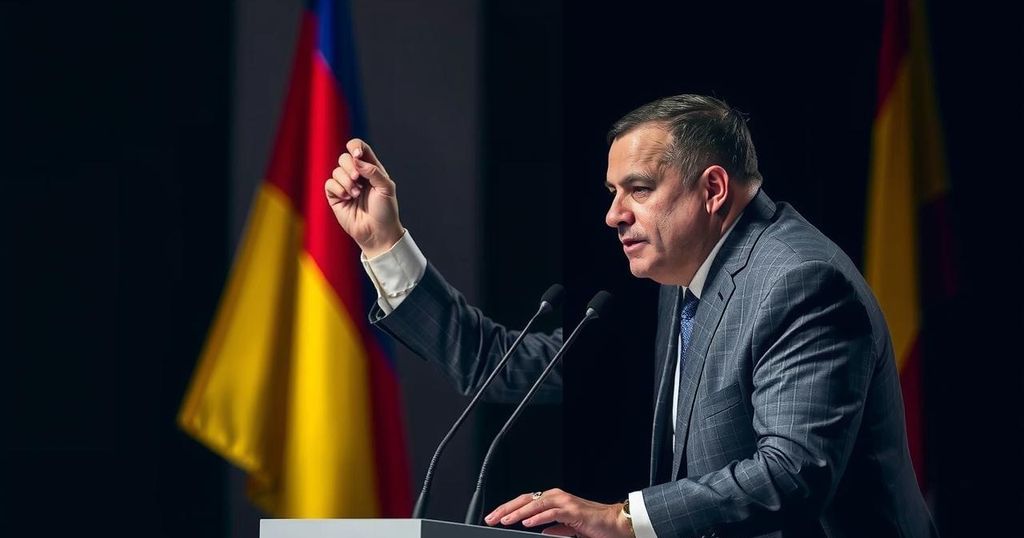Moldovan Elections Under Siege: Reports of Russian Interference

Moldovan officials are reporting extensive Russian interference in the presidential runoff election involving incumbent Maia Sandu and challenger Alexandr Stoianoglo. Sandu’s national security adviser warned of potential distortions to the election outcome, raising concerns about the effects of foreign meddling as Moldova grapples with its desire to integrate with the EU while managing its complex relationship with Russia.
In a critical runoff for the presidency of Moldova, officials are reporting significant interference by Russia, which is jeopardizing the electoral process. The national security adviser to the current pro-Western president, Maia Sandu, Stanislav Secrieru, expressed concerns over Russia’s involvement, stating it is an “effort with high potential to distort the outcome” of the election. President Sandu is competing against Alexandr Stoianoglo, a previous prosecutor general who is supported by the pro-Russian Socialist Party. This election is pivotal as it may influence Moldova’s trajectory—either aligning closer to the European Union or reverting to Russian influence. During the first electoral round on October 20, Maia Sandu secured 42% of the vote, falling short of the required majority, while Stoianoglo garnered nearly 26%. The Moldovan electorate recently displayed their preference for EU integration in a referendum amid allegations of Russian meddling. Supporters of the incumbent, such as Sandu, have accused opponents of attempting to manipulate the electorate by buying votes. Moldova, a nation of three million inhabitants, is watching closely as the EU keeps a keen eye on the election, particularly after Georgia’s recent election showed a trend towards pro-Russian governance. Furthermore, Sandu has criticized Stoianoglo’s ties to the Kremlin, framing him as a potential Trojan horse in Moldovan politics, while Stoianoglo counters these claims, suggesting Sandu has neglected the needs of ordinary citizens.
Moldova has been striving to strengthen its relationship with the European Union, a goal championed by President Maia Sandu, particularly in light of current geopolitical tensions with Russia. The country has historically had a complex relationship with Russia, often oscillating between pro-European and pro-Russian policies. The presidential elections serve as a litmus test for Moldova’s political alignment moving forward, especially following a recent referendum that indicated a preference for EU integration amidst allegations of foreign interference. Understanding the candidate’s positions is crucial: Sandu advocates for EU alignment, while Stoianoglo proposes to balance ties with Russia along with EU aspirations.
In conclusion, the current presidential election in Moldova represents a significant crossroads for the nation as it navigates potential alignment with the European Union versus a return to Russian influence. Reports of substantial electoral interference from Russia shadow the democratic process, highlighting the importance of fair and transparent elections. The campaign dynamics between Maia Sandu and Alexandr Stoianoglo illustrate the broader conflict of interests at play within Moldova, making the outcome of this election critically important not only for Moldovan citizens but also for the wider geopolitical landscape of Eastern Europe.
Original Source: news.sky.com








